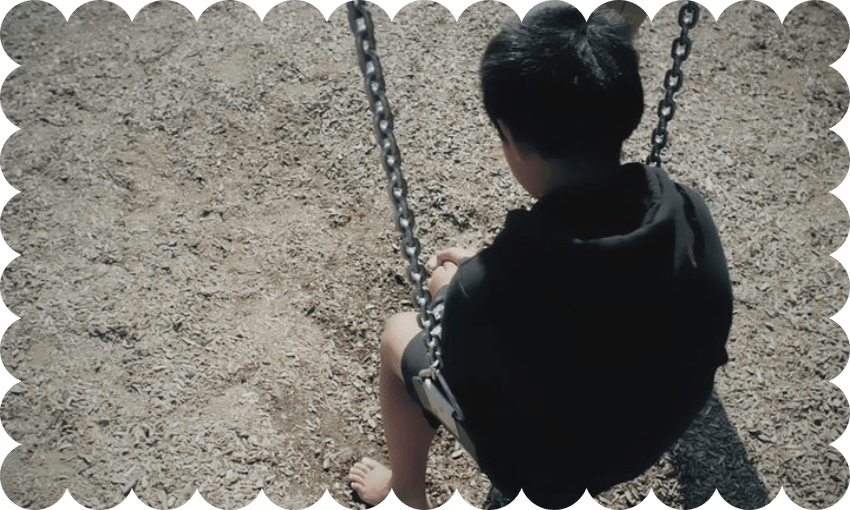The report into Malachi’s tragic death recommends a new law that will negatively impact Māori while failing to fix our broken system.
Yesterday saw the release of another review into Oranga Tamariki, this one focused on the circumstances leading to the death of Malachi Subecz, the five year old killed by his carer last November. Malachi’s death was an unspeakable tragedy – that should never be diminished or forgotten. There is a vital urge to understand what happened so that it can never happen again. Similarly, it is important to ensure children’s voices are heard. Children are routinely silenced by the child protection system, and we should not accept that.
In the review, one of Dame Karen Poutasi’s central recommendations is to introduce mandatory reporting protocols for suspected child abuse. Mandatory reporting is when an identified group of professionals (for example healthcare workers or teachers) are legally required to report suspected child abuse (to Oranga Tamariki, for example), or face prosecution if they fail to.
Mandatory reporting is something that has been considered in New Zealand for at least 30 years, most significantly in reviews of the child protection system in 1992 and 2012. In the latter report, mandatory reporting was seriously considered by the government, but the evidence base to support such a change was found to be lacking. The government eventually decided against mandatory reporting, as it had done several times previously.
The problem with mandatory reporting
As associate professor Emily Keddell has explained, there are several reasons why mandatory reporting doesn’t work, and generally makes things worse. She notes that reporting policies already exist for everyone who works with children, alongside formalised ethical obligations for many professionals. Mandatory reporting laws make the false assumption that professionals currently come across obvious cases of abuse and choose not to report them. Instead, judgement calls are involved, and in situations where professionals currently choose not to report, mandatory reporting laws are unlikely to change those judgement calls.
Our child protection system is currently overwhelmed, under-resourced and fundamentally broken. Keddell explains that mandatory reporting makes those problems worse by overwhelming the system with an enormous increase in notifications, most of which do not need to be dealt with by the state. This reduces trust in the agency and ironically makes it more difficult to identify the highest-risk cases of abuse. Mandatory reporting also increases racism in the system by encouraging people to report “suspicions”, which are inevitably informed by bias. There is evidence, for example, of differing perceptions of risk from social workers when a child or whānau member is Māori. These are longstanding problems which mandatory reporting has the potential to exacerbate.
Where is the input from Māori?
Even more concerningly, Poutasi’s report ignores the most important recent development in child protection in Aotearoa New Zealand: the Waitangi Tribunal report into Oranga Tamariki. Just last year the Tribunal found that Oranga Tamariki and its predecessor agencies have repeatedly breached Te Tiriti, including the guarantee of tino rangatiratanga over kainga. Yesterday’s report notes that its recommendations must be implemented in line with the Crown’s treaty obligations, but the Waitangi Tribunal has found that the current system is broken beyond repair, and the only way to uphold those obligations is to shift away from the current system entirely. There doesn’t appear to have been any significant input from Māori in the preparation of Poutasi’s report.
This is hugely concerning given that several of the report’s recommendations could have major impacts on Māori. Alongside mandatory reporting, the recommendations include vetting of potential caregivers when a sole parent enters the prison system (which will disproportionately impact Māori) and compulsory notification to Oranga Tamariki when a caregiver who is not a formal guardian subsequently requests a sole parent benefit (which will also disproportionately impact Māori). The stated intent of yesterday’s report is to fix the safety net for vulnerable children, but the more likely outcome is to widen the net through which marginalised Māori families are caught and further disadvantaged by the state. In my view, full implementation of the report’s recommendations would probably constitute a further treaty breach.
The report has a significant focus on information sharing, but information sharing mechanisms between agencies already exist. Like mandatory reporting, these are mostly matters of organisational culture, practice guidance and human behaviour, not law and policy. Moreover, for many whānau, especially whānau Māori, information-sharing becomes just another form of government surveillance, worsening the existing inequalities which characterise our justice, welfare and child protection systems already.
There is a huge assumption here that the solutions to this problem lie with the state. Poutasi’s terms of reference required her “to examine and identify ways to improve the children’s sector identification of, and response to, abuse of children and young persons”. But “the sector” here is a misnomer: what is really being referred are state agencies. The Waitangi Tribunal has made it clear that Te Tiriti gives Māori the authority to solve these problems, and that the Crown’s role is one of support, not leadership. The master’s tools will never dismantle the master’s house: the state is what caused this problem, and it will not be the thing to solve it.
If we want to ensure children and whānau are not silenced when they come into contact with the child protection system, we cannot ignore the wider problems which that system perpetuates. If we want to prevent harm, we cannot continue to uphold a system which itself is enormously harmful. The children and whānau in contact with the system are disproportionately Māori, and there are far more effective solutions to be found based on tikanga Māori than there are within our current state-based structures.
Multiple reports have found that those systems are broken beyond repair, and it’s time we started listening. The most recent report misses that reality entirely, and the government are right to be cautious about implementing its recommendations.





